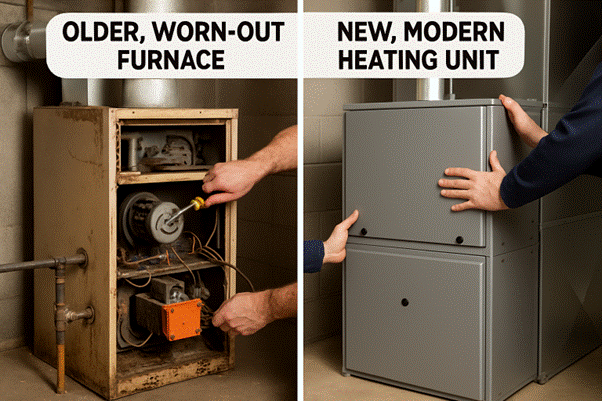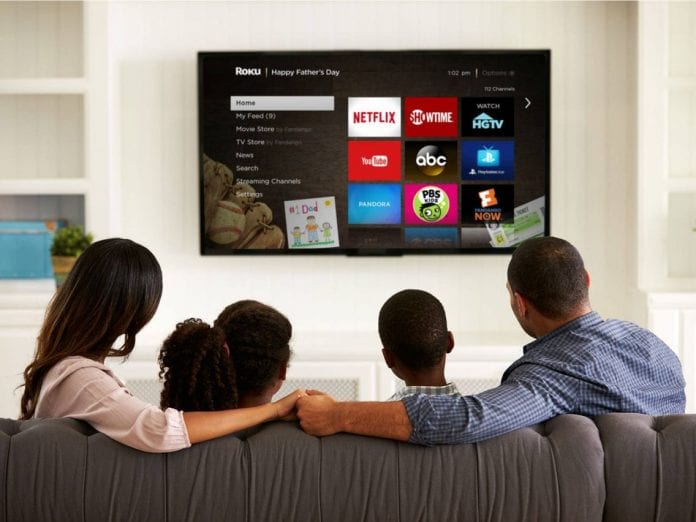Key Takeaways:
- The heating systems normally have a life of 15-20 years; age and frequency of repair is the major factor that determines between repair and replacement.
- The 50 percent policy assists in informing the decisions on costs- in case repairs cost more than half of the price of a new item then replacement is usually rewarding.
- The energy efficient systems reduce utility bills, contribute less to the environment and can be eligible for rebates.
- Constant failures, inefficiency, or safety concerns such as carbon monoxide leakage are feedback that it needs to be replaced.
- Good maintenance history helps in making repair decisions whereas systems that are not maintained should be replaced.
- By hiring the services of HVAC experts, you are certain to make decisions that meet your budget, comfort requirements and long term objectives.
Being aware of the time when it is better to invest into repairs or make a complete replacement of your heating system is the key to all house-owners who would like to reduce costs and to stay comfortable during a long period of time. You are either getting to uncontrolled utility rates or you are getting your system failing, whatever the case is, it is well known that knowing the cause of the problem would help you make the right decision. When you are experiencing inconveniences and want the immediate way out, booking furnace repair in Sierra Vista, AZ will be a great start to regaining comfort and tranquility.
Nevertheless, all issues with a heating unit do not justify a repair.Some cases might require altering of the unit which can be the most feasible and most cost effective one bearing in mind the energy efficiency, safety and perpetual reliability. Such decisions are not painful to make and the following step by step guide can help you make the decision which one you should make to get your place of residence.
Testing the Age of Your Heating System.
Life expectancy of the central heating or furnace is 15 to 20 years. When the unit you have is in this range or out of this range and you have to repair it quite often, then you can be better off spending on a replacement. Instead, more recent systems with randomly appearing problems are usually great candidates to be repaired. Younger system may have warranty cover and thus is cheap to maintain in the short run.
Evaluating Repair Costs
It is essential to know the economics of repair and replacement. The popular 50% rule states that when the cost of fixing your existing system is 50 percent or more than the cost of installing a new one, then it is more likely to be better to get a replacement. Key parts such as the heat exchangers, compressors are costly to replace and may not last long enough to make the price worthwhile.
It is prudent to look at the short term costs and the long run operating costs. Such a huge repair cost and the possibility of additional maintenance work being required are strong indicators that replacement is better.
Considering Energy Efficiency
The heating systems in the past tend to be not as efficient as the modern ones and thus the monthly energy bills tend to be high. Modern high efficiency system will fully transform the operations of the company in terms of emissions and high costs of running the company. As an example, ENERGY STAR-rated systems Upgrading efficiency guidelines by the U.S. Environmental Protection Agency assist homeowners save up to 20 per cent on their heating expenses in the long run, as stated by the Checkbook of Washington Consumers.
Analyzing Performance and Reliability
Constant maintenance may prove to be tedious as well as expensive in case your heating system fails on you or provides the wrong level of heat. It must be reliable in comfort particularly in the cold seasons and hence chronic problems in performance is a sign that your unit is nearing the end of life. This new system investment will bring sanity and reduce frequent service calls and emergency repairs.
Reviewing Maintenance History
Properly serviced heating systems tend to be long lasting and more efficient. When your furnace or heat pump has been serviced by a professional regularly, it is more likely to be worth repairing in the future when something goes wrong. Contrarily, neglected systems have a higher chance of breaking down and tend to wear and tear sooner and hence replacement is the wiser option.
Assessing Safety Concerns
The units that are old may be extremely dangerous in terms of health such as carbon monoxide leaks or power outages. When a technician notices the indicators of these threats, there is need to act immediately. The safety of your household and adherence to the present-daythe old equipment can be substituted with the new one which is safer and more effective to ensure safety rules and norms.
Environmental Impact to be looked at.
Many house owners are increasingly becoming aware of their environmental footprint.. The cost of replacing your current systems with energy-efficient systems is less and usually offers you tax rebates and incentives. The newer systems consume less energy and are built with materials that are environmentally friendly, which helps in the sustainability initiative within your community.
Consulting with Professionals
Each and every heating system and home is different and thus expert advice is priceless. HVAC professionals will check the status of your existing system and provide a cost-benefit analysis which will depend on the size of your house, the insulation, and the local climate. This is because when one consults a professional, he or she will be making an informed decision that will be very long-lasting, within his or her budget and aspirations.







